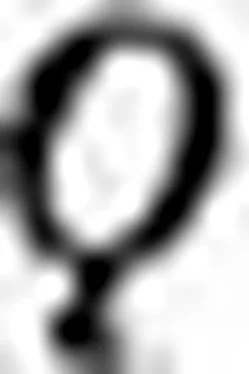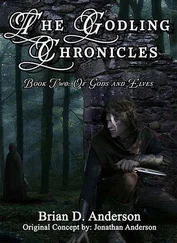Hilda Ellis Davidson - Gods and Myths of Northern Europe
Здесь есть возможность читать онлайн «Hilda Ellis Davidson - Gods and Myths of Northern Europe» весь текст электронной книги совершенно бесплатно (целиком полную версию без сокращений). В некоторых случаях можно слушать аудио, скачать через торрент в формате fb2 и присутствует краткое содержание. Жанр: История, на английском языке. Описание произведения, (предисловие) а так же отзывы посетителей доступны на портале библиотеки ЛибКат.
- Название:Gods and Myths of Northern Europe
- Автор:
- Жанр:
- Год:неизвестен
- ISBN:нет данных
- Рейтинг книги:5 / 5. Голосов: 1
-
Избранное:Добавить в избранное
- Отзывы:
-
Ваша оценка:
- 100
- 1
- 2
- 3
- 4
- 5
Gods and Myths of Northern Europe: краткое содержание, описание и аннотация
Предлагаем к чтению аннотацию, описание, краткое содержание или предисловие (зависит от того, что написал сам автор книги «Gods and Myths of Northern Europe»). Если вы не нашли необходимую информацию о книге — напишите в комментариях, мы постараемся отыскать её.
Gods and Myths of Northern Europe — читать онлайн бесплатно полную книгу (весь текст) целиком
Ниже представлен текст книги, разбитый по страницам. Система сохранения места последней прочитанной страницы, позволяет с удобством читать онлайн бесплатно книгу «Gods and Myths of Northern Europe», без необходимости каждый раз заново искать на чём Вы остановились. Поставьте закладку, и сможете в любой момент перейти на страницу, на которой закончили чтение.
Интервал:
Закладка:
4. The Doom of the Gods
The Death of Balder
Next Gangleri learned of the event which led to the destruction of the earth and of Asgard, the death of Balder the Beautiful. Balder, son of Odin, had ominous dreams, and the gods, fearing that danger threatened him, sent Frigg to extract an oath from all things on earth, whether living creatures, plants, or things of metal, wood, and stone, that they would do no harm to Balder. After this they found it amusing to fling darts and hurl heavy objects at Balder, knowing that they could do him no hurt. But Loki took on the disguise of a woman, and talked with Frigg. He learned that one little plant, the mistletoe, had taken no oath, since Frigg had thought it too young to threaten Balder. Filled with spite, Loki pulled up mistletoe and persuaded Hoder, the blind god, to throw it at Balder in sport, guiding his hand as he threw. The dart pierced Balder through, and he fell dead to the earth.
Bitter indeed was the grief of the Aesir, and Odin’s most bitter of all, since he alone knew the extent of the loss they had suffered. Frigg begged that someone would ride to the kingdom of death and bring Balder back to them. Hermod, another of Odin’s sons, agreed to make the perilous journey, riding Odin’s horse Sleipnir. The gods meanwhile took up Balder’s body and laid it on a funeral pyre built on his own ship, Hringhorni . A giantess pushed it off the rollers into the sea, and there Balder was burned on the pyre, with his wife Nanna, who had died of grief, and his horse beside him. Odin laid the gold ring Draupnir, one of the great treasures of the gods, upon the pyre as a last gift. All the gods and goddesses came to Balder’s funeral.
Hermod’s Ride to Hel
Meanwhile Hermod had been riding down the dark road to the land of the dead, and over the bridge that spanned the Resounding River. There was a maid, Modgud, guarding this bridge, and she came out in wonder to see who came riding with such noise and tumult. Balder, she said, had already passed that way, and five troops of the dead, but this newcomer was not like such travellers, and had the aspect of a living man. At last Hermod reached Hel-gate, and Sleipnir leaped over it with ease. The hall of Hel stood open before them, and Balder was sitting in the high seat. Hel was willing to release him on condition that all things in the world, living or dead, would weep for him. But should any creature refuse to weep, she said, then he must stay with her and never go back to the Aesir. So Hermod bade farewell to Balder, who gave him Draupnir to bear back to Odin and many rich gifts besides, and returned with Hel’s answer.
At the summons of the gods, all things did indeed weep for Balder, men and beasts, stones and metals, in the way that we see all things weep after frost, when the air grows warm again. But at last the messenger of the gods came to a giantess, alone in a cave. When they asked her to weep for Balder, her reply was a deadly one:
Alive or dead, the old man’s son
has been no use to me.
Let Hel hold what she has!
It was believed that this giantess was no other than Loki himself, seeking in his malice to keep Balder in Hel.
The Aesir were so wrathful that Loki knew that this time he had no hope of mercy if they caught him, so he fled from them, built a house with doors looking out in every direction, and then changed himself into a salmon in the river. But Kvasir, the wisest of the Aesir, found some ashes on the hearth where Loki had been burning a net, and from the shape of this he realized that this was the only way to catch the nimble salmon. They made the net to Loki’s pattern, and at the third try they caught him by the tail. Loki was then bound across three flat stones, held down by the entrails of one of his own sons. There he was left to writhe beneath the mouth of a snake, which dropped its poison on to his face. His faithful wife Sigyn sat with a bowl to catch the poison drops, but each time she went to empty it the poison fell on Loki again, and his struggles caused the earth to shake.
Ragnarok
There Loki must lie until Ragnarok, the time of the destruction of the gods. This fearful time will be ushered in by many portents. First there will be great wars through the world, and a time of strife and hatred between men. The bonds of kinship will hold them no longer, and they will commit appalling deeds of murder and incest. There will also be a period of bitter cold, when a terrible pursuing wolf catches the sun and devours her; the moon too is to be swallowed up, and the stars will fall from the sky. The mountains will crash into fragments as the whole earth shakes and trembles, and the World Tree quivers in the tumult. Now all fettered monsters break loose. The wolf Fenrir advances, his great gaping jaws filling the gap between earth and sky, while the serpent emerges from the sea, blowing out poison. The sea rises to engulf the land, and on the flood the ship Naglfar is launched, a vessel made from the nails of dead men. It carries a crew of giants, with Loki as their steersman. From the fiery realm of Muspell, Surt and his following ride out with shining swords, and the bridge Bifrost is shattered beneath their weight. His forces join the frost-giants on the plain of Vigrid, and there the last battle will be fought between this mighty host and the gods.
The note of Heimdall’s horn arouses the Aesir to their danger, and Odin rides to the spring beneath the World Tree, to take counsel of Mimir’s head. Then with his chosen champions from Valhalla he goes out on to the plain, to encounter at last his ancient enemy, the wolf. Thor meets the World Serpent, and Freyr fights against Surt; Tyr must encounter the hound Garm, broken loose from the underworld, while Heimdall does battle with Loki. All the gods must fall, and the monsters be destroyed with them. Thor kills the serpent, and then falls dead, overcome by its venom. Odin is devoured by Fenrir, but his young son Vidar slays the wolf in turn, setting one foot upon its jaw and tearing it asunder. Tyr and Heimdall both conquer their opponents, but they do not survive the struggle. Only Surt remains to the last, to fling fire over the whole world, so that the race of men perishes with the gods, and all are finally engulfed in the overwhelming sea:
The sun becomes dark. Earth sinks in the sea.
The shining stars slip out of the sky.
Vapour and fire rage fiercely together,
till the leaping flame licks heaven itself.
Yet this is not the end. Earth will arise again from the waves, fertile, green, and fair as never before, cleansed of all its sufferings and evil. The sons of the great gods still remain alive, and Balder will return from the dead to reign with them. They will rule a new universe, cleansed and regenerated, while two living creatures who have sheltered from destruction in the World Tree will come out to repeople the world with men and women. A new sun, outshining her mother in beauty, will journey across the heavens.
Such is the picture of the beginning and end of the world of gods and men, drawn for Gangleri by the Three Powers.
5. The Giants and the Dwarfs
In the second section of this book, Gangleri has disappeared and Snorri fills out his outline by adding more stories about the gods which will serve to explain some of the imagery used by poets. Nearly all the stories which he includes in Skáldskaparmál (Poetic Diction) have to do with attempts by the giants to get the better of the gods and to steal their treasures.
The Theft of the Apples
First we hear of the theft of the apples of youth. One day when three of the gods, Odin, Loki, and Hoenir, were journeying together, they tried to roast an ox for their dinner, but the meat would not cook. At last a mighty eagle in an oak called out to them from above, and offered to get the meal cooked for them if they would give him a share. It turned out that his idea of a fair share meant the greater part of the ox, and Loki in a rage attacked him with a stick. He was caught up with the stick, and carried through the air, and the eagle refused to let him go until he promised to bring him Idun and her golden apples. When Loki returned to Asgard, it was easy to lure Idun outside on some pretext, and the giant Thiazi, still in his eagle form, bore her off to his home.
Читать дальшеИнтервал:
Закладка:
Похожие книги на «Gods and Myths of Northern Europe»
Представляем Вашему вниманию похожие книги на «Gods and Myths of Northern Europe» списком для выбора. Мы отобрали схожую по названию и смыслу литературу в надежде предоставить читателям больше вариантов отыскать новые, интересные, ещё непрочитанные произведения.
Обсуждение, отзывы о книге «Gods and Myths of Northern Europe» и просто собственные мнения читателей. Оставьте ваши комментарии, напишите, что Вы думаете о произведении, его смысле или главных героях. Укажите что конкретно понравилось, а что нет, и почему Вы так считаете.












